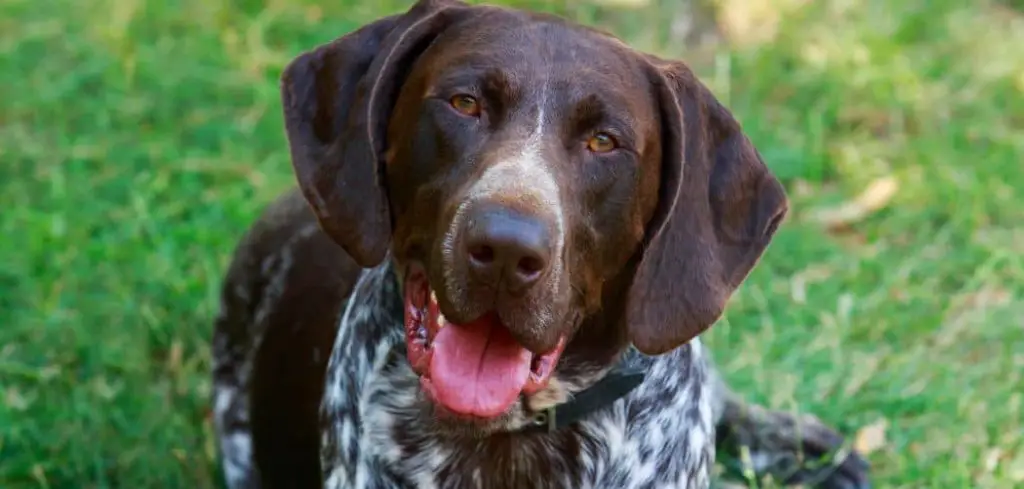If your dog only eats once a day, it can leave you wondering if this is normal or a sign of an underlying problem.
Eating habits in dogs vary, but a consistent drop in appetite or a sudden change in routine can signal something more concerning.
We outline the common reasons for a dog only eating once a day, what you can do at home, and when to seek veterinary help.
Table of Contents
Dog Only Eats Once a Day — Why It Happens
A dog may only eat once a day due to normal eating preferences, age-related changes, or underlying health conditions. Some dogs simply prefer fewer, larger meals, especially if they are small-breed dogs with fast metabolisms or active large-breed dogs that regulate their intake differently.
However, a dog eating just once a day can also be linked to dental pain, digestive upset, stress, or illness.
While it’s not always a red flag, consistently skipping meals may point to something worth addressing with your vet.

Dog Only Eats Once a Day: Common Causes
Natural Feeding Preference
Some dogs naturally prefer to eat once a day. This is more common in adult dogs who self-regulate their food intake.
They may eat one large meal and feel satisfied until the next day. While this can be normal, it’s important to ensure your dog is still maintaining a healthy weight and energy level.
Read more: Dog Only Eats at Night (Causes explained)
Age-Related Appetite Changes
As dogs age, their appetite can shift. An older dog may become less active and need fewer calories, which can result in eating only once a day.
Senior dogs may also experience changes in digestion or metabolism that alter their hunger cues.
While this can sometimes be normal, it’s important to rule out age-related health conditions that may suppress appetite.
Dental Pain or Oral Problems
Dogs with dental disease, broken teeth, or sore gums may avoid eating multiple meals because chewing is painful.
They might manage one meal when hunger is strongest, but avoid returning to food later. Signs of dental pain include drooling, chewing on one side, pawing at the mouth, or bad breath. Left untreated, dental problems can significantly reduce a dog’s quality of life.
Digestive Upset
If a dog has an upset stomach, they may eat less frequently. Acid reflux, gastritis, or mild gastrointestinal discomfort can cause a dog to skip meals.
They may still eat one meal a day but avoid food at other times to prevent discomfort. If vomiting, diarrhea, or gurgling stomach sounds accompany this change, it could indicate a more serious digestive issue.
Stress or Environmental Changes
Stress, anxiety, or changes in the home can impact eating habits. Dogs are sensitive to their environment, and moving to a new home, adding a new pet, or changes in routine can lead them to eat less often.
Stress-related eating changes are often temporary, but if they persist, they can point to underlying anxiety that may need support.
Underlying Medical Conditions
Certain medical conditions, such as kidney disease, liver problems, or metabolic disorders, can cause a decrease in appetite.
A dog may still eat once daily to satisfy basic hunger but avoid more frequent meals due to nausea or fatigue.
If your dog is also drinking excessively, losing weight, or showing other unusual symptoms, it’s time to see the vet.
What to Do If Your Dog Only Eats Once a Day
If your dog eats once a day but appears healthy, energetic, and at a stable weight, it may simply be their natural feeding preference.
You can continue to monitor their eating habits while ensuring they have access to fresh food and water daily.
Try adjusting meal times to see if your dog prefers one larger meal or two smaller meals spaced out.
Offering food at consistent times can help regulate appetite. If dental issues are suspected, schedule a dental checkup with your vet. Switching to softer food may also make eating easier for dogs with sore teeth or gums.
For dogs with mild digestive issues, smaller, more frequent meals or sensitive-stomach diets may help.
Reducing stress through a consistent routine, exercise, and calm environments can also support healthier eating patterns. Always monitor for additional symptoms that suggest an underlying problem.
When to Call or Visit Your Vet
If your dog only eats once a day but is otherwise thriving, it may not be an immediate concern.
However, veterinary attention is needed if your dog shows signs such as sudden weight loss, vomiting, diarrhea, excessive drooling, lethargy, or increased thirst.
Call your vet if the once-a-day eating pattern is a sudden change from their normal habits, especially if paired with behavioral changes.
Dogs that refuse food for more than 24 hours or show signs of pain, weakness, or distress should be evaluated promptly. Early intervention can help prevent more serious complications.
Read more: Dog Only Wants to Eat Grass (What it means)
Key Takeaway
A dog only eating once a day can sometimes be perfectly normal, especially if they maintain weight, energy, and overall health. However, changes in eating habits can also signal dental pain, digestive upset, stress, or underlying illness.
Monitoring your dog closely and seeking veterinary advice when needed ensures their health and comfort.
Always trust your instincts—if your dog seems unwell, a vet visit is the best step to take.
